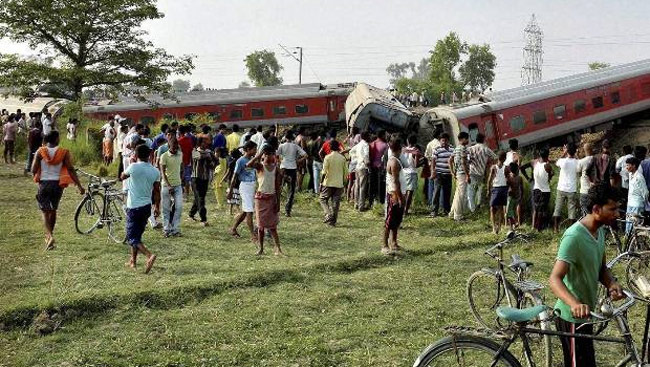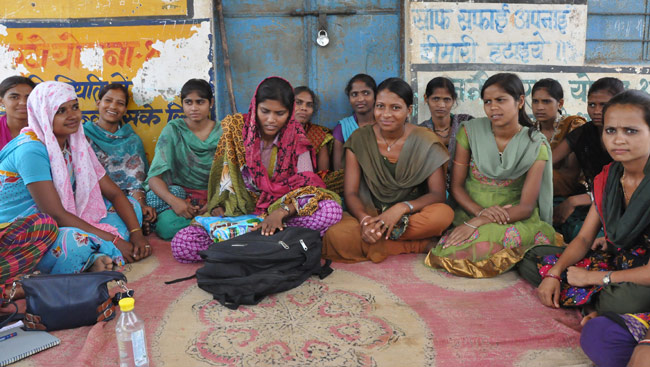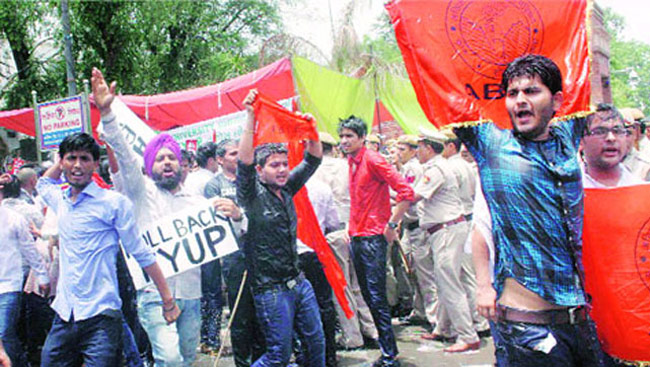From the outside it looks imposing and its unique circular shape makes it one of the landmarks of the Indian capital and a prime tourist attraction. But the 87-year-old Parliament House, a heritage building and India's "temple of democracy", is falling into disrepair with leaking pipes, damp walls, space crunch and much wear and tear leading many to ask whether it is safe to continue in this building. .
But the government said there is no proposal yet despite the fact that the idea to shift was proposed in a meeting of a committee comprising MPs and parliament officials.
According to well informed sources, at a recent meeting of the budget committee comprising Deputy Speaker of Lok Sabha M. Thambidurai, Public Accounts Committee Chairman K.V. Thomas and Estimates Committee Chairman Murli Manohar Joshi and other officials, it was suggested that the proposal to shift should be considered.
Minister of State for Parliamentary Affairs Mukhtar Abbas Naqvi said there was no official proposal to shift as of now.
"There is no official proposal to shift Parliament House. Individual suggestions keep on coming from time to time though," Naqvi told IANS. "We cannot say as of now if there is need for a new building," he added.
But Congress leader Thomas told IANS: "We should think of a new parliament building. It is old. We should think of the next 100 years."
"This building was built by the British. There could be more members and they would need to provide them facilities," said Thomas, who is member of the budget committee that looks after expenditure on maintenance and other expenditures related to Parliament House.
"The minutes of the meeting held a week back will go to the speaker (Lok Sabha Speaker Sumitra Mahajan) and she will take the final decision," Thomas told IANS. He added that a similar suggestion was mooted when Somnath Chatterjee was speaker. But nothing happened.
When contacted many MPs told IANS they would not want to be shifted from the heritage building.
K.C. Tyagi, Rajya Sabha member from Janata Dal-United, told IANS: "This is not just a building, it is our heritage. We need to preserve it. It is an issue of maintenance.
"This is our heritage, the constitution was made here. There is no sense in moving away. There is so much technology and this building is not even 100 years old."
Senior Congress member and former deputy chairman of Rajya Sabha K. Rahman Khan agreed that maintenance was at the root of the problem.
"More attention to maintenance is needed. There are several other democracies which have parliament buildings much older than ours... British parliament for example is older," Khan told IANS.
"They have maintained their building and so I feel with some more attention we can maintain ours too," he said.
But ask a parliament building staff member for whom maintenance of the massive building is a daily routine. "Maintenance is done all the time; but the building is huge and it is very difficult to remove the dampness that has seeped inside," an official told IANS on condition of anonymity.
"The pressure (to house everyone) is increasing every day. There are more political parties now, which has spurred the need for more rooms. But any modification in the building is difficult as it is very old, and a heritage building at that. We need permission to even put a nail," he said.
Spread over six acres, the majestic structure is built with pink and red sandstone.
The foundation stone of the Parliament House building was laid in 1921. Constructed at a cost of Rs.83 lakh, it was inaugurated in January 1927.
Designed by British architects Ediwn Lutyens and Herbert Baker, the building has several rooms that house political parties, Lok Sabha and Rajya Sabha officials' offices, rooms for committee meetings, and offices of ministers and functionaries.
Also, there are rooms for media, canteens, other offices, along with toilets, which have increased from 24 to 48, according to official data. Some rooms are being used for dumping old junk or files.
Though there have been minor incidents, it was only when in 2009, a part of the ceiling fell in Room No. 37, which belonged to then petroleum minister Murli Deora, that suggestions to shift first started emerging.
Deora was not in the room at that time.
The cause was later found to be cooking gas cylinders piled on the floor above.
This led to a ban on cooking in the main parliament building, and the food in the canteens is now brought from the adjacent parliament library.
In 2012, the sitting of Rajya Sabha was disrupted on two days, May 10, and May 18, due to foul smell coming from a drain. The overpowering stink created panic, with some members suspecting it to be leaking cooking gas, or even a gas attack.
In July 2012, former Lok Sabha speaker Meira Kumar was quoted as saying that the building was "weeping". She ordered a high-powered committee to be set up to suggest an alternative complex.
However, not much progress happened on that front.
A study by the Central Building Research Institute, Roorkee, suggested a slew of measures, beginning with water-proofing to arrest further damage.
However, it is just not dampness and maintenance work; there is also need for more space.
Khan suggested a way out.
"One option could be to shift the offices of political parties and others to the parliament library building, and keep the main building only for sittings of the two houses," Khan told IANS.





